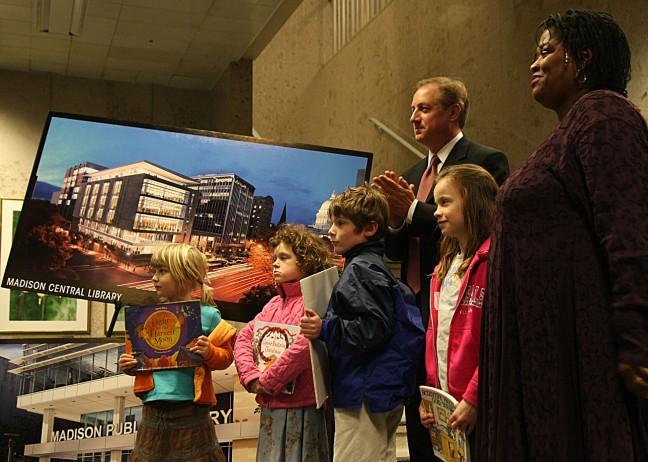City Council secured the proposed new Central Library in the capital budget Tuesday, though the fate of the capital budget, including the disputed Edgewater funding, remained undecided.
The original amendment regarding the library, proposed by Ald. Schumacher, District 18, called for the city to not enter into any construction agreements for the library until funding could be secured from federal tax credits as well as $4 million from private fundraising.
Schumacher acknowledged the concern of jeopardizing the private fundraising for the project and the amendment’s effect on the timeline of construction. As a substitute to the amendment, he proposed dropping the language guaranteeing private fundraising but still maintained the project not go forward until the federal tax credits are available.
This substitute, according to Schumacher, would allow for the project to continue unfettered but would also offer the public some comfort tax credits that would be used for the project and decrease public liability for it.
Before a decision was made, the public gave its input on the amendments and corresponding projects, including the controversial Edgewater hotel.
The vast majority of the public spoke against the original library amendment on grounds the amendment would be an unnecessary delay for the project.
Madison resident Tom Landgraf said the time is right to seek the tax credits, as recent actions from the state Legislature have made extra funds available.
“I would encourage you … to not do anything that would delay your ability to get out into the market,” Landgraf said.
Chair of the Madison Public Library Board Tripp Widder said the library board is “firmly committed” to raising $10 million in private fundraising and if the original amendment were adopted, it would delay the project.
Gregory Markle of the library board said any delay in the project would hinder the fundraising process, as it would introduce an element of uncertainty into the project and detract from fundraisers’ ability to answer questions to potential contributors — such as the ground-breaking and completion date.
“Any contingency on this makes it not quite a project in the donor’s mind,” Markle said. “Anything you add onto this (project) has a chilling effect on fundraising.”
Member of local trade unions also spoke against the amendment on the basis it would delay a project offering much needed jobs in a time of economic languish.
In the end, the vast majority of the City Council approved of the substitute amendment for the Central Library, securing the item in the capital budget.
Unlike the library amendment, public comment was split on the amendment to take out the tax incremental financing for the Edgewater hotel project, likely to be voted on in today’s council meeting.
Some citizens in support of the amendment said the current project was not right for Madison and public funds should not be contributed to the project when it was not explicitly clear what the public is getting out of the deal.
Mansion Hill Steering Committee member Fred Mohs said the project would threaten the important historic district, which should be protected.
“Bit by bit, if we don’t know where we are going we will really wreck this (district),” Mohs said.
Others said the project would gain the city jobs for local workers, and the TIF funds would benefit the city by increasing its tax base and affording increased public access to the lake through the public plaza.
Bob Dunn, president of developer Hammes Company, asked for the council to kill the amendment so he can have a chance to continue with the project and come back with the full plan for the council’s approval.








